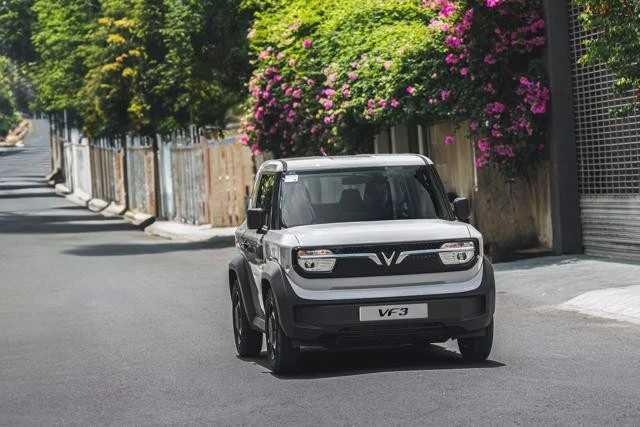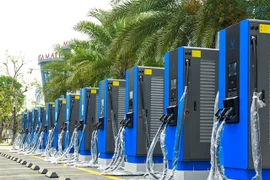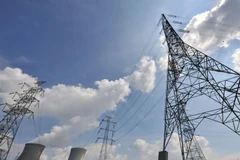Hanoi (VNS/VNA) — Starting March 1, battery-powered electric vehicles (EVs) in Vietnam will no longer be exempt from registration fees.
Instead of enjoying a zero percent registration fee, these vehicles will be required to pay 50% of the fee applicable to internal combustion engine cars with the same seating capacity.
This change is part of Decree No.10/2022/ND-CP, issued on January 15, 2022. The initial zero percent registration fee incentive for electric cars was effective for three years, from March 1, 2022, to February 28, 2025.
Following this period, from March 1, 2025, to February 28, 2027, the registration fee for EVs will be set at half of the fees for petrol and diesel vehicles.
With this change, buyers of battery-powered electric vehicles in Vietnam will face new registration fees, which will range from approximately 5 to 6% of the vehicle's listed price, depending on where they are bought. This is a shift from the previous zero percent exemption.
As an example, if an electric vehicle is priced at 1 billion VND (40,000 USD), the registration fee will be around 50-60 million VND based on the specific province or city of registration. This increase in costs may affect the overall affordability and rolling costs for electric vehicle owners compared to the previous exemption.
Industry experts predict that the upcoming change in registration fees for electric vehicles in Vietnam will significantly impact the market. The end of the zero percent registration fee exemption is expected to increase the rolling costs of electric cars, which could diminish their appeal.
Previously, the preferential policies have driven sales and fostered a so called 'green car' movement in the country. However, this shift is seen as a necessary step toward sustainable development in the electric vehicle sector, moving away from reliance on short-term incentives.
Experts anticipate a surge in electric vehicle purchases before the end of February 2025, as consumers aim to capitalise on the remaining time for the zero percent registration fee. This could lead to significant savings of tens of millions of Vietnamese dong.
The application of registration fees for EVs in Vietnam presents both opportunities and challenges for manufacturers, particularly for VinFast, which has already made significant investments in promoting EV adoption.
One of those ways is that VinFast is implementing a free battery charging policy at its V-Green public charging stations. This initiative is set to run until June 30, 2027, and is available to all users of VinFast electric vehicles, including those in the transportation service sector.
This strategy not only enhances the appeal of VinFast's EVs but also aims to promote the use of electric transportation across Vietnam.
The Vietnamese EVs market remains relatively small compared to other countries in the region, with around 500,000 vehicles, and EVs are still in the early stages of development. Given this context, effective measures are crucial for fostering growth.
Industry experts predict that without significant policy support, the demand for EVs in Vietnam may flat line or even fall across 2025.
Many businesses in Vietnam feel that the current incentives for EVs are insufficient compared to those offered in other countries in the region.
They say to stimulate the electric vehicle market in Vietnam, it's essential to motivate companies and consumers through effective policy measures including tax support, interest rate stimulus, infrastructure investment, purchasing incentives and public awareness campaigns.
The World Bank's report highlights significant growth in electric car sales in Vietnam, projecting 163,000 units by 2025 and 559,000 units by 2030, nearly 1.3 million units by 2035 and about 6.8 million in 2050.
For Vietnam to reach these ambitious targets, the implementation of appropriate policies is crucial.
According to a study by Mordor Intelligence, overall EV market size in 2024 is estimated at 2.48 billion USD. It is expected to reach 5.67 billion USD 2029 with a compound annual growth rate (CAGR) of approximately 18% between 2024 and 2029./.




























